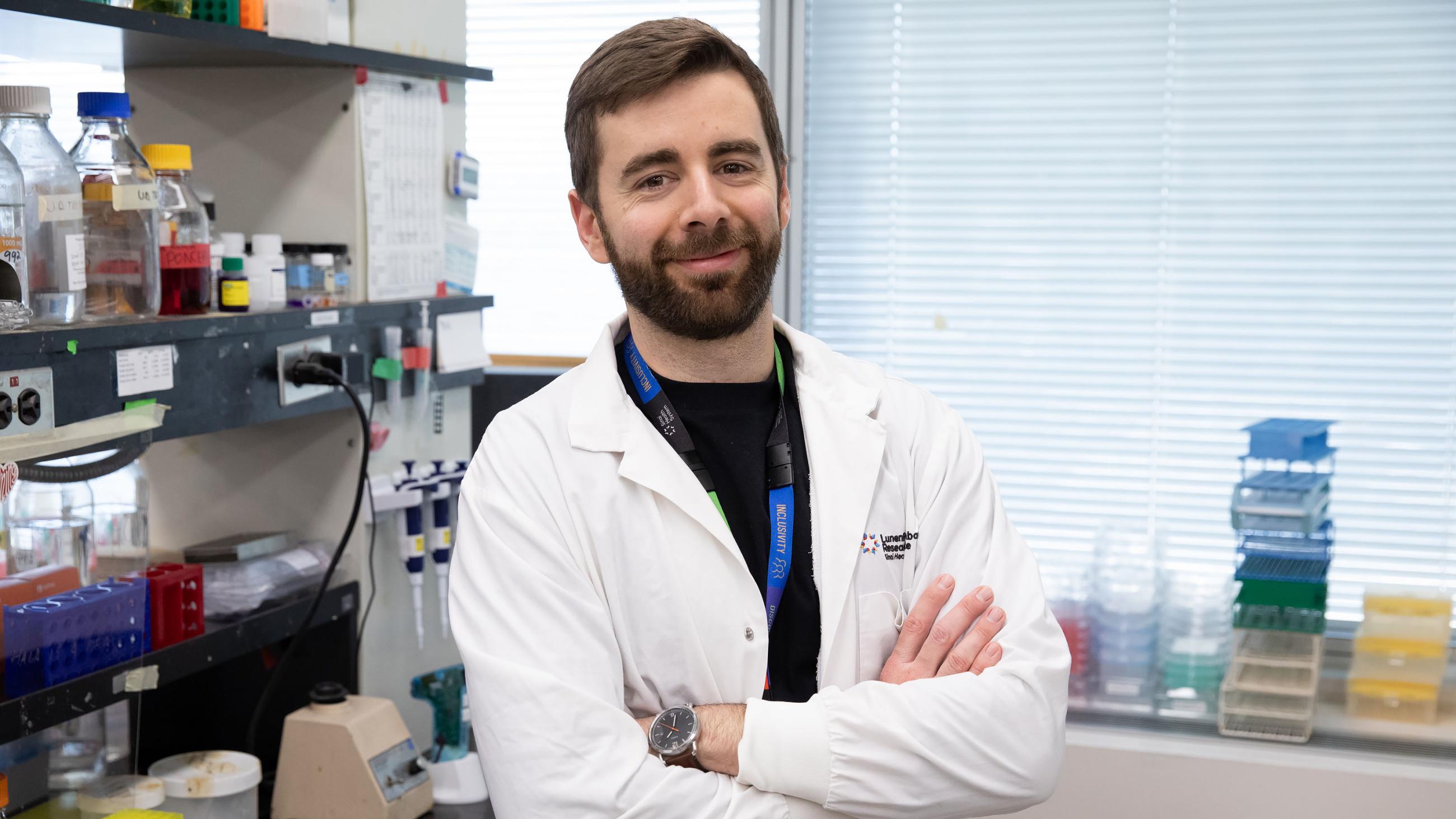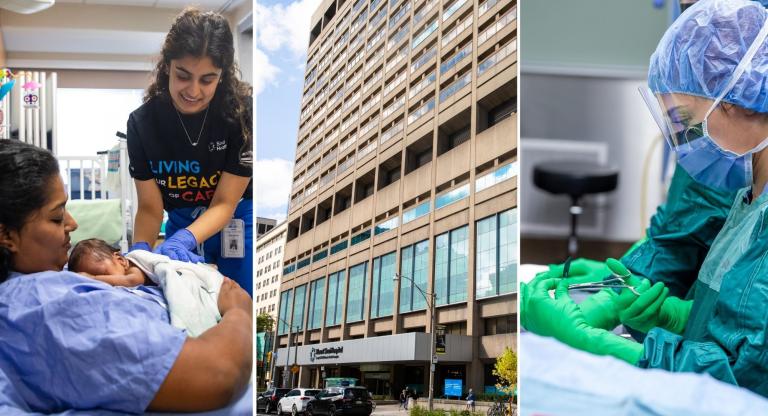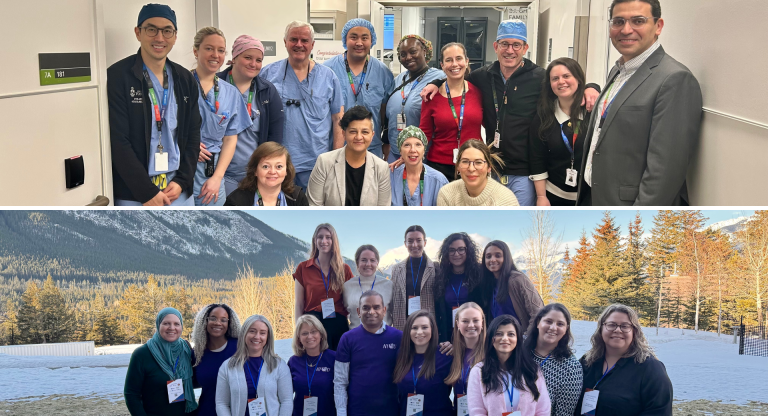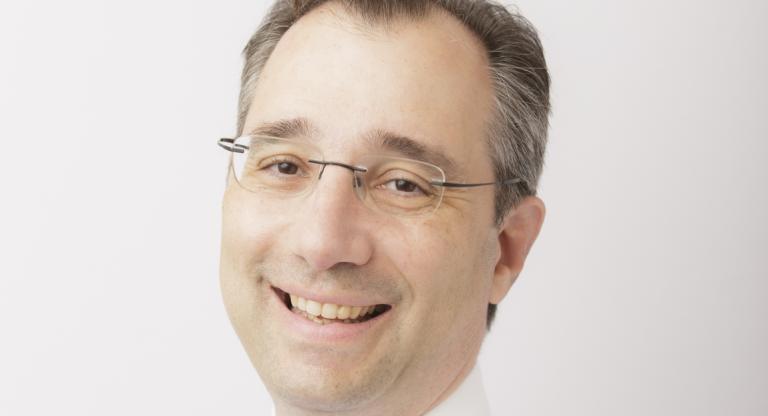Frankenstein protein research nets Dr. Ugo Dionne a prestigious national award

Sinai Health postdoctoral research fellow Dr. Ugo Dionne has been awarded the prestigious Next Generation of Scientists Award from the Cancer Research Society (CSR). Unique in Canadian cancer research, the highly competitive honour recognizes exceptional early-career scientists and supports them to launch independent research programs to advance cancer research.
Dr. Dionne’s work explores how genome instability, a hallmark of cancer, disrupts cellular signaling networks. In cancer cells, broken DNA fragments are often stitched together in abnormal ways, creating gene fusions, or hybrid genes that produce what he calls “Frankenstein proteins”. These fusion proteins combine parts of two distinct genes and can hijack normal cellular functions, driving uncontrolled growth. While healthy cells typically eliminate such aberrant proteins, cancer cells evolve mechanisms to bypass these safeguards, allowing the Frankenstein proteins to persist and fuel tumour development. Despite their significance, gene fusions remain underexplored because they require highly specialized tools to study them.
Drawn to the world-class expertise in proteomics and cellular signalling in the Gingras Lab at the Lunenfeld-Tanenbaum Research Institute (LTRI), part of Sinai Health, Dr. Dionne joined the team in 2021 to pioneer one of the first functional analyses of gene fusions found in human tumours. His focus is on fusions involving tyrosine kinases, which are enzymes that regulate cell growth and are frequently overactive in cancers.
“I chose to come to LTRI because of Dr. Anne-Claude Gingras and the proteomics platform she developed,” said Dr. Dionne, who completed his PhD at Laval University. “Here, I’ve had the intellectual freedom to test my ideas and access some of the best instruments and expertise in the world.”
LTRI houses a state-of-the-art proteomics facility within the Network Biology Collaborative Centre, co-directed by Dr. Gingras, who also serves as LTRI Director and Vice President, Research, Sinai Health.
Using BioID proximity labeling, an approach that reveals which proteins crowd together in cells, and other advanced proteomics, Dr. Dionne mapped how fusion proteins form aggregates inside the cells that act as rogue signaling hubs. He built a library of over 50 patient-derived kinase fusions, most of which have been detected in lung cancer. He then systematically analyzed their localization, behaviour and impact on cellular pathways.
His findings reveal that the fusion partner, not just the kinase, plays a critical role in determining how these proteins behave and respond to treatment. For example, different variants of the same fusion can show distinct signaling profiles and drug resistance patterns. This challenges the idea of one-size-fits-all therapies and supports a personalized medicine approach. Other times, the kinase itself is the main driver of cell proliferation, suggesting that in some cases, diverse tumours might still be targeted by the same kinase inhibitor.
Dr. Dionne is now expanding his research to ovarian and endometrial cancers, exploring how kinase fusions contribute to disease. With support from the CRS award, which includes one year of postdoctoral salary and two years of startup funding for his future lab, he is beginning to explore faculty positions that will allow him to translate these discoveries into targeted therapies, potentially using organoids and patient-derived models to guide clinical decisions.
“I am beyond thrilled that Ugo has won the prestigious Next Generation of Scientists award,” said Dr. Gingras. “Not only because I have had the privilege of working closely with him, but also because his success reflects the collaborative and empowering research environment at LTRI that enables trainees to thrive and lead independent projects, setting them up for future success.”












